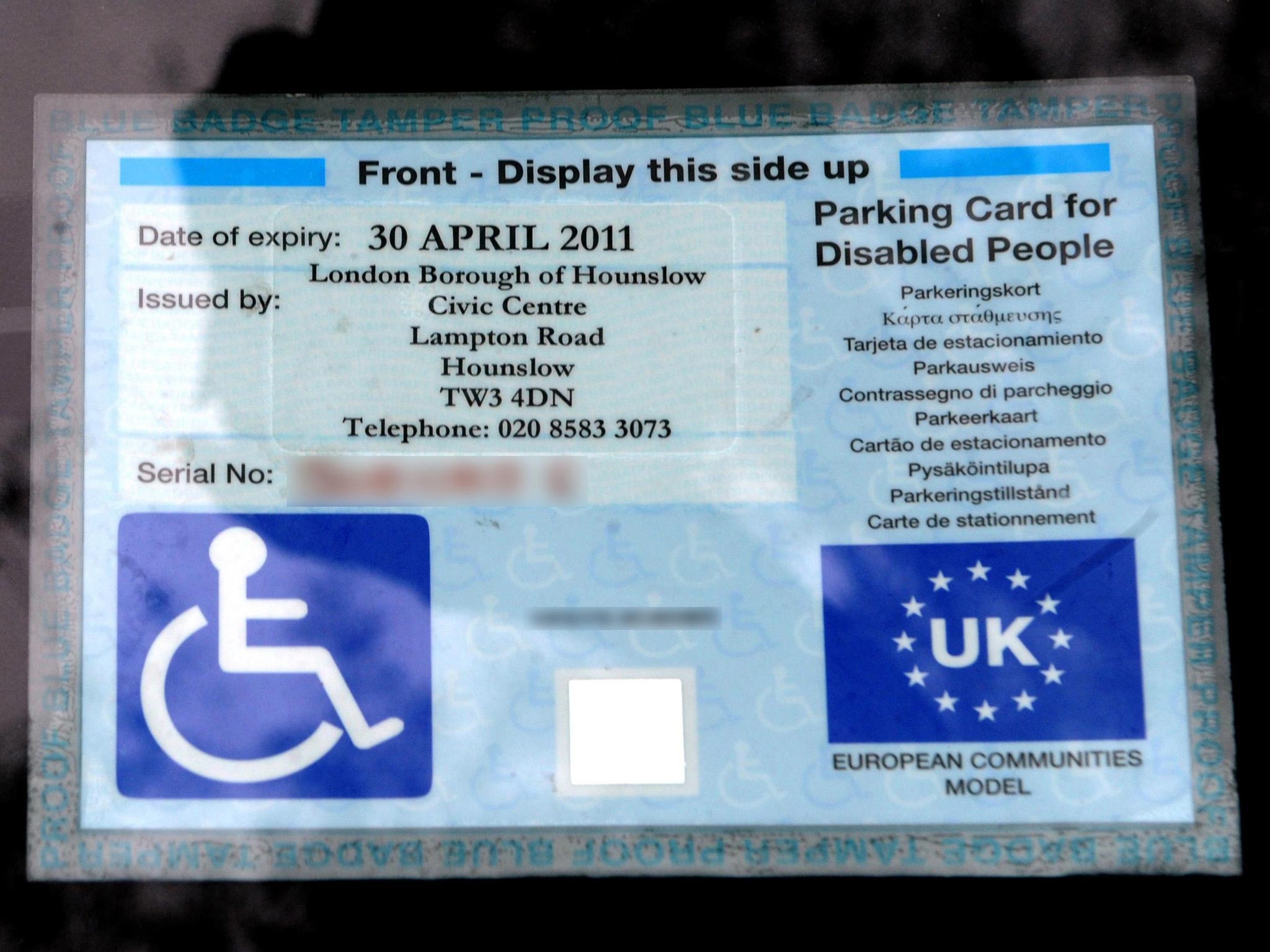Blue badge parking permits to be rolled out to people with hidden disabilities, Government proposes
Proposal aims to give people with conditions including dementia and autism better access to work, shops and social events

Your support helps us to tell the story
From reproductive rights to climate change to Big Tech, The Independent is on the ground when the story is developing. Whether it's investigating the financials of Elon Musk's pro-Trump PAC or producing our latest documentary, 'The A Word', which shines a light on the American women fighting for reproductive rights, we know how important it is to parse out the facts from the messaging.
At such a critical moment in US history, we need reporters on the ground. Your donation allows us to keep sending journalists to speak to both sides of the story.
The Independent is trusted by Americans across the entire political spectrum. And unlike many other quality news outlets, we choose not to lock Americans out of our reporting and analysis with paywalls. We believe quality journalism should be available to everyone, paid for by those who can afford it.
Your support makes all the difference.People with hidden disabilities could soon be entitled to blue badge parking permits under Department for Transport (DfT) plans.
The Government said the proposals would make it easier for people with conditions such as dementia and autism to travel to work, socialise and access shops and services in England.
It is hoped the move - which would be the biggest change to the blue badge scheme since it was introduced in 1970 - would help create parity in the treatment of physical and mental health.
The DfT said councils have different interpretations of existing rules with only some recognising hidden disabilities.
The new policy is designed to provide “clear and consistent” guidelines. Around 2.4 million disabled people in England have a blue badge.
This enables them to park free of charge in pay and display bays and for up to three hours on yellow lines, while in London they exempt holders from having to pay the congestion charge.
Around three out of four blue badge holders say they would go out less often if they did not have one, according to the DfT.
Transport minister Jesse Norman said: “Blue badges give people with disabilities the freedom to get jobs, see friends or go to the shops with as much ease as possible.
“We want to try to extend this to people with invisible disabilities, so they can enjoy the freedom to get out and about, where and when they want.”
The changes being put to an eight-week public consultation also include blue badge assessments being carried out by a greater variety of healthcare professionals who can spot if mental health is causing mobility issues.
Sarah Lambert, head of policy at the National Autistic Society, welcomed the proposal and said amending parking permit access could be “a lifeline” for many autistic people, who often do not qualify under current regulations.
Autistic people can suffer anxiety from not being able to park in a predictable place close to their destination, and some can “experience too much information” from the environment around them on public transport, Ms Lambert said.
“We hope the Government will make this important change and we look forward to working with them to make sure that autistic people and their families benefit.”
Press Association
Join our commenting forum
Join thought-provoking conversations, follow other Independent readers and see their replies
Comments